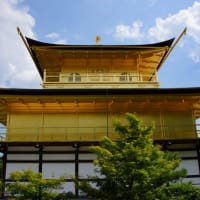The following is from the serial column of Nobuyuki Kaji, Professor Emeritus of Osaka University, which brings the beginning of the monthly magazine WiLL released today to a successful conclusion.
It is the best article I have read on the Science Council of Japan.
It is a must-read not only for the Japanese people but for people all over the world.
There are various groups of naive fools globally, but the most prominent one is the Science Council of Japan, which issued a statement in late April.
As is well known, the prime minister did not appoint six of the candidates for membership put forward by the Science Council of Japan six months ago.
The late April statement by the Council was an extension of its defiance.
However, the government ignored it.
The situation has not changed at all.
In other words, the Science Council of Japan has shown just how powerless it is.
I am entirely unrelated to the Science Council of Japan. Still, as long as I know the statements and actions of the Science Council of Japan since the government refused to appoint several people, the actions and thoughts of the Science Council of Japan I can comment on how to do it in one word.
In other words, it is a typical example of a group of people who become "fools."
The Science Council of Japan is a group of people with no sense of decency, common sense, or insight.
It is ridiculous for them to say that they are responsible for Japan's academic problems.
It is the individual researchers carrying the burden of Japanese academics and, by extension, Japanese academic problems.
It is not like an elementary school arts festival, and just because they are a group does not mean that they represent Japanese academia.
As proof of this, I wondered if the six scholars who were denied appointments were the ones who created historical theories in their research fields.
I am in a different field, but I don't know of any.
If you ask me, what about you, I will answer immediately.
I have created two theories that will last for a hundred years.
I will tell you with confidence that you can understand Chinese classical studies from the bottom up based on these theories.
I have never been indebted to any group such as the Science Council of Japan because I have always relied on my own efforts to create such theories.
While they were spending their time on frivolous meetings, I was desperately continuing my research.
The cost of my research was created by saving on living expenses.
When there was a shortage, I would write manuscripts for the general public to make up for it.
Whenever they had something to say, they would make a fuss about research expenses.
Are they serious about that?
As a humanities major and a classical studies student, I have spent a lot of time deciphering specific classics, depending on the volume.
Of course, the anguish and joy of reading in silence, with precision, comes from the solitude of the individual.
I want to declare that the wrong environment for researchers is the shallow meetings and campus politics.
Nevertheless, the Science Council of Japan is wriggling around under a particular political movement.
If the organization claims to be genuinely indispensable for researchers, why not shake off the protection of the state and turn it into a private gathering of researchers?
If it is indispensable, if the annual membership fee is 10,000 yen and 10,000 people gather, we can make 100 million yen (the current budget of the conference).
If the number of researcher members was 300,000, we could raise 300 million yen.
That would be the true Science Council of Japan, independent of the state.
However, the Science Council of Japan does not have any such ideas, insight, or courage.
They are just hanging on to the national budget.
Then there is no such thing as academic independence.
In addition, it has no idea of academic dedication for the benefit of the nation.
In short, even if the Council were to be shut down, there would be no hindrance to researchers' research.
The government has a budget of billions of yen for such an unnecessary project is itself a problem.
Suppose the government has such a budget to spare. In that case, it could distribute the billions of yen to the approximately 1,000 unemployed humanities researchers in their late 20s and early 30s and provide them with an annual research grant of 1 million yen per person.
As for the science researchers, the companies concerned should provide them with research funds.
They would be a new source of strength for the companies.
It is interesting to see the incompetent and powerless Science Council of Japan fighting against the government.
As the ancients say, it is as foolish as wanting to block the direction of a big car with a Mantis ax.

















